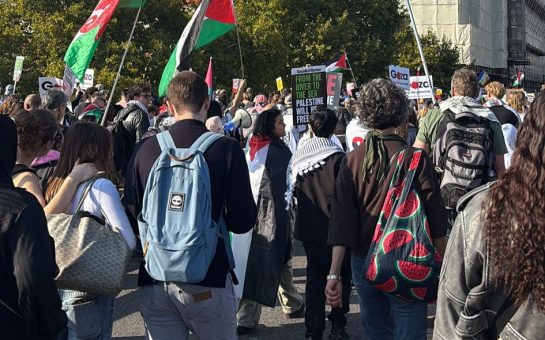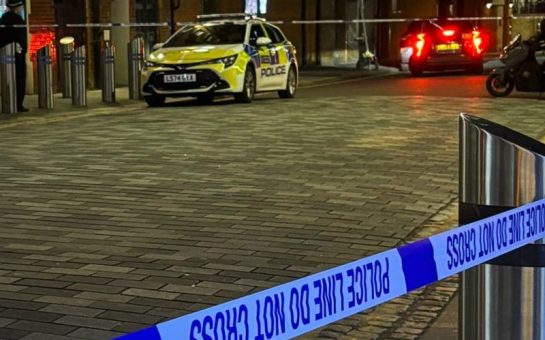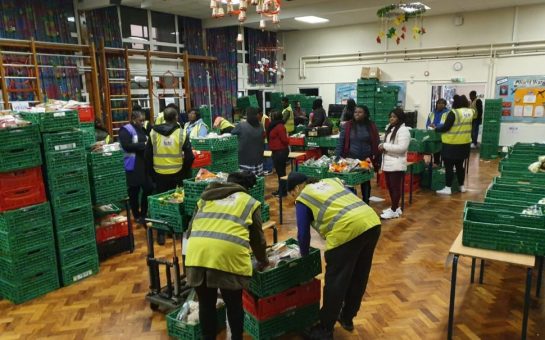From activists, Mosques, community members and local MPs, a wide variety of people and organisations from different backgrounds and faiths in south west London have demonstrated, fundraised, protested, spoken out to offer humanitarian support to the Palestinian people.
Two Palestinian women from Hebron in the West Bank, Deema, 39, and Mayar, 20, are dressed up for our Zoom call, as though for a formal occasion, wearing their traditional hijabs for the camera.
Deema said: “The conflict has affected us. Mostly, it has restricted our daily lives between cities, movements, even post and things like that.
“We cannot move freely. We cannot get normal things. It’s just very tiring.”
Mayar added: “Yeah, and it’s depressing. There’s no freedom for us.”
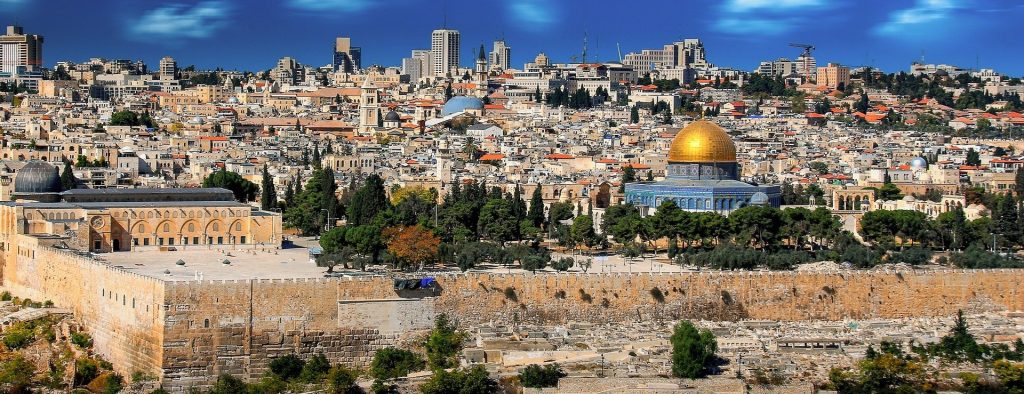
Starting on 10 May, 11 days of violence between Israel and Palestine erupted during the festival of Ramadan, resulting in a complex sequence of events which ultimately killed 256 Palestinians (including 66 children) and at least 13 Israelis.
Thus, an existing conflict was made freshly relevant, bringing an increased global awareness to the humanitarian issue.
“It’s not just a Muslim cause, it’s purely humanitarian,” Atif Bhatti of the Kingston Muslim Association asserted.
“The majority of our congregation come to the mosque not looking at this from a political viewpoint, but from their own humanitarian point of view, where they feel the Palestinians deserve their rights.
“There is no voice for the Palestinians.
“It’s something that we’ve all got to be worried about, because if people aren’t safe in the holiest months on a holy site, then this whole situation is something we need to come together into one.”
In June, Kingston Muslim Association raised almost £16,000 to ‘feed Gaza’s dispossessed’ in response to the escalating crisis in the occupied Palestinian territories.
Organised by their community congregation, the project’s aim was to raise money for Gaza following the escalation of violence and hardship in the region, for medical aid, hospital funding and supplies.
“We got an amazing response from within,” Bhatti said.
The combination of congregation and community engagement led to financial aid support raised and directly donated to Ummah Welfare Trust, a move which fed 444 families in the Gaza territory by sending emergency food packages.
Bhatti added: “The deterioration in services, electricity, the sewage system is just going to be, again, getting worse.
“The people feel that it there’s not enough they can do to alleviate the problem because there are areas and boundaries created by the regime of the current government.
“That’s not to belittle the new government as well, the border is not getting any better.”
In May 2021, during the festival of Ramadan and after weeks of tension, the al-Aqsa mosque in Jerusalem was raided with IDF soldiers attacking worshippers.
When news broke out, the chair of Trustees at the Kingston Muslim Association wrote an open letter to Sarah Olney, Richmond Park MP.
The letter expressed ‘deep concern’ toward escalating tensions in the region, urging the UK government to take action to bring an end to the violence in Gaza and the West Bank and was supported by 270,000 signatures.
“Everyone’s fearful of talking about the situation, purely because no one wants to get labelled anti-Semitic,” Bhatti said.
“We can criticise our government and not be called anti-British, but if we criticise the government of Israel, we get called anti-Semitic. The government needs to take responsibility. We are finding this amongst not just among the Muslim community, but the wider community.”
Olney said that she received a significant amount of correspondence from constituents, many of whom feel very strongly about the conflict, some of whom have been personally impacted.
“It was therefore important to use my platform as an MP to draw attention it,” she said.
“The Liberal Democrats stand firmly for the values of liberalism, internationalism, and in support of the indivisibility of human rights and the rule of law.
“It’s important to me that I’m listening to my Muslim constituents and reflecting their concerns.
“It is vital that the UK Government plays its full part to avoid war. That involves working with the international community to facilitate the negotiations between two equal partners to ultimately de-escalate the conflict.”
The bold move led to Layla Moran MP, the Liberal Democrat Spokesperson for Foreign Affairs, to manage a national response to the situation, with an intention to put a halt to the potential evictions, demolitions and settlement expansions in the West Bank, all within breach of international law.
Olney addressed Richmond Synagogue among multiple local communities and people of faith to simultaneously extend her support to the Jewish community in Richmond Park.
She said: “I know the conflict has aroused anxieties amongst many. I am keen to work collaboratively with my constituents, regardless of their religious, cultural, and political affiliations or beliefs, to identify issues and concerns.”
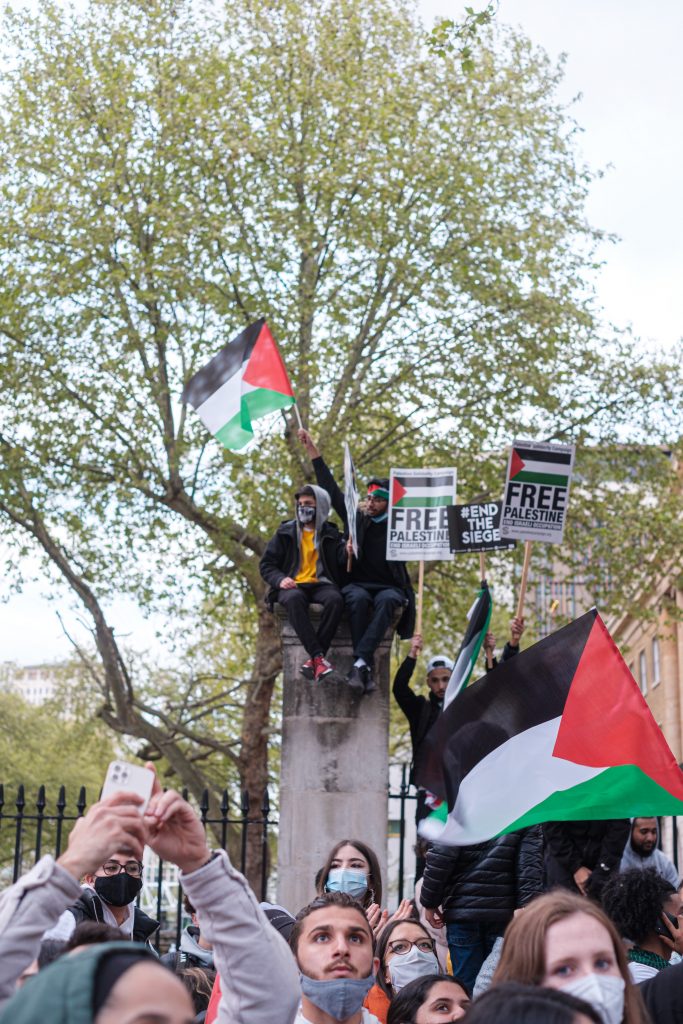
Having lived in Hebron in the West Bank of Palestine for her whole life, Mayar studies Economics, Politics and Philosophy in Istanbul, Turkey.
Her university experience has brought her an awareness of freedom of which she had not been able to encounter before.
“I did notice when I went to Turkey that everyone has the freedom of opinion,” she said. “You can think whatever you want, you can say whatever you want. You have the right to to say your voice.”
Jerusalem has been an epicentre of the conflict, violations of international law, and a cause of subsequent humanitarian attention.
Mayar has relatives in Jerusalem, where her Grandmother, Hanan, was born and raised.
She added: “We were so worried about them and they always reassured us that they are good, they feel safe. If they didn’t answer, we would phone so much, worried maybe something happened. The internet was so bad to communicate with them.
“There are no permits to go out there. People that go to Jerusalem, they go in different ways. We were at home, saw what happened on social media. We were terrified. It was just really confusing.”
Deema said: “I don’t have relatives in Jerusalem, but of course we do feel worried about people there.
“We do see the images on social media. We were just watching from afar, Our hearts were with them, but there’s not much we could do.”
The violence sparked international outrage across many people of different faiths, in part due to the fact that the Palestinian visitors to the site of the Dome of the Rock were peaceful worshippers.
Deema added: “What made it all ignite at once? The holiest month in the year, one of the holiest days. They didn’t respect us and they didn’t respect that nothing was going on politically. They were just going to worship.”
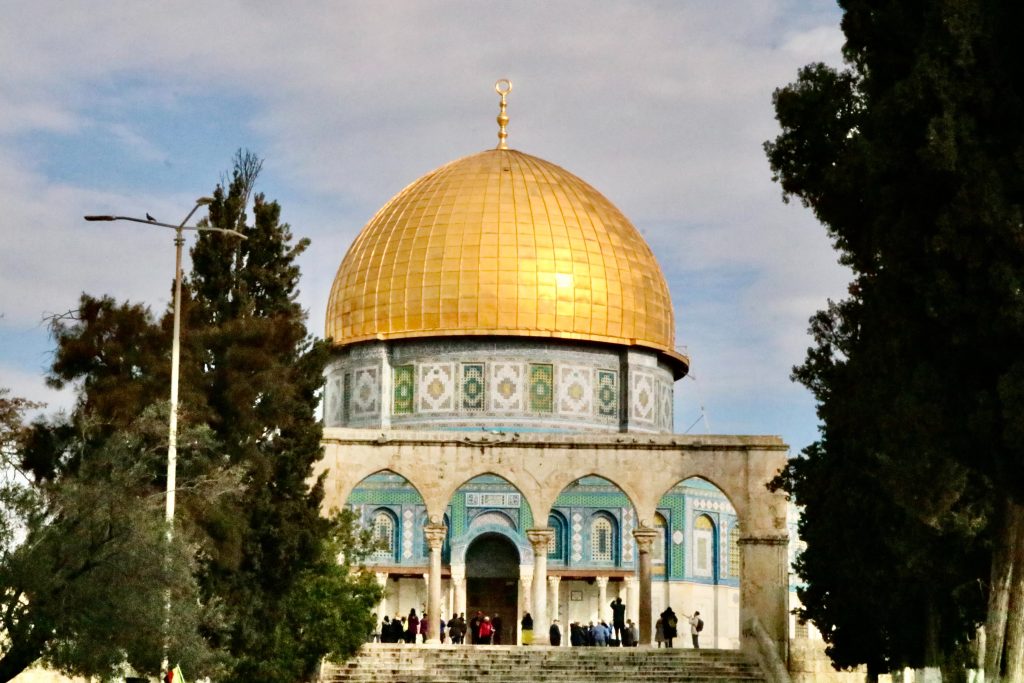
Mayar explained: “The Dome of the Rock is where the Prophet Muhammad lived coming to Mecca. It’s a miracle that happened for Prophet Muhammad. It means a lot.
“How can I say we feel peaceful there? We were able to go every week, every day if we wanted to. But now we don’t have that. We don’t have the right to go to pray.
“That even is considered a luxury now to go to Jerusalem, to go to Al-Aqsa Mosque.”
In London, a mass response to the Palestinian humanitarian crisis also arrived in the form of organised, large scale protests which amounted to approximately 200,000 people.
They were part of a wider network of protests across the UK, including Manchester, Cardiff, Plymouth and Belfast.
The London-based demonstrators for action and solidarity with Palestine congregated at Victoria Embankment before they marched through to Hyde Park.
The march blocked traffic. Placards, banners and flags were to be seen everywhere, with green and re-coloured smoke was let off to resemble the colours of the Palestinian flag.
The police made seven arrests on a day of otherwise peaceful protest.
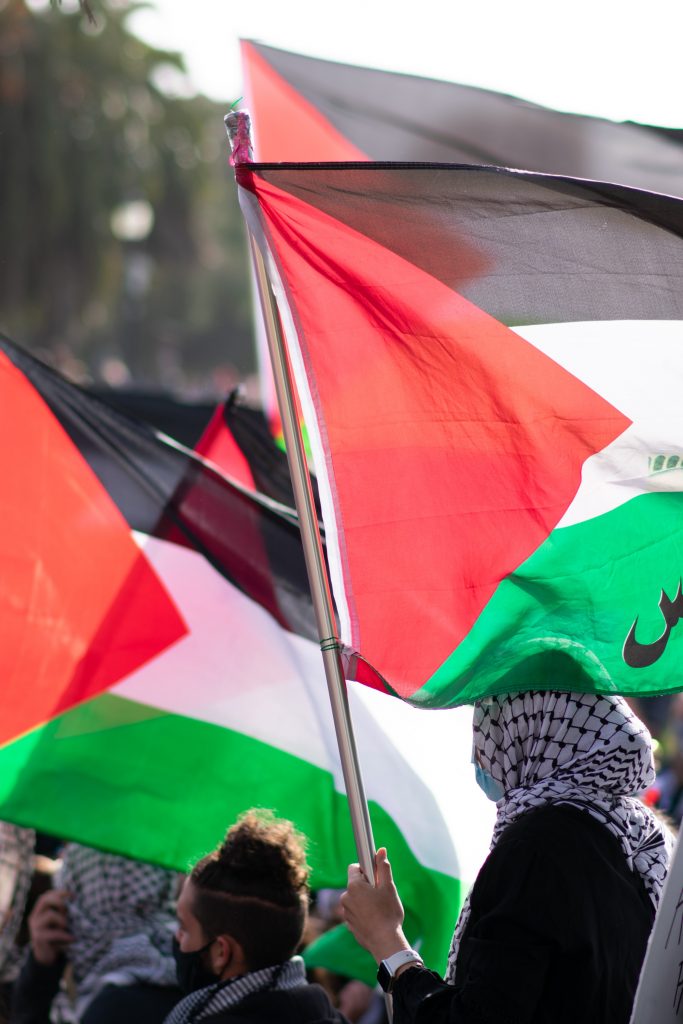
Roua, a spokesperson for Palestine Solidarity Campaign’s London branch, emphasised the importance of networking and community involvement.
She explained: “We have a lot of these networks already in place. So when something really big happens, a lot of the legwork has already been done.
“We worked really closely with five other organisations who also were cohosting the demonstrations: the Muslim Association of Britain, Palestinian Forum in Britain, Friends of Al-Aqsa Campaign for Nuclear Disarmament, and Stop the War.
“All these five organisations have their own networks as well. We have a connection. We came together, mobilised, called on everyone to take to the streets and it spread from there.”
The Palestine Solidarity Campaign worked with its partners, including 14 trade unions and numerous student societies, to mobilise the protests at a national level.
The organisation consists of 70 branches all over the country, each of which works within their local community.
Roua said: “There has been a shift of how social media is used. More people across social media are engaged in and with issues of social justice.
“If you look at how many people mobilize for the Black Lives Matter movement and how much that spread in a way that maybe a couple of years ago it wouldn’t have, you can apply the same reasoning to this.
“It’s become more common to use things like Instagram and Twitter to raise awareness and not just to kind of browse.”
Like many, Roua believes the Palestinian right to self-determination to be crucial in finding a peaceful solution to the problem.
She added: “We believe that actually Palestinians, and those on the ground, are the ones who get to decide what that peaceful end looks like. We believe that Palestinians themselves have the right to decide.”
In the West Bank, Deema and Mayar’s eyes both widen on the topic of the rise of international support.
“We were shocked that all this support came at once,” Deema said. We feel like finally people are understanding the story better. People are actually saying, yes, there is a Palestine.”
“We want people to educate themselves about what’s happening in Palestine and knowing the truth,” Mayar said.
The ceasefire brought a temporary sigh of relief to the region, but the humanitarian crisis in Gaza and the West Bank continues, as does support for the cause internationally and at home.
